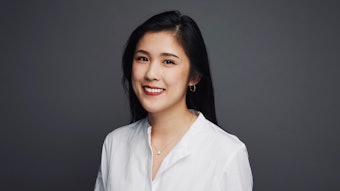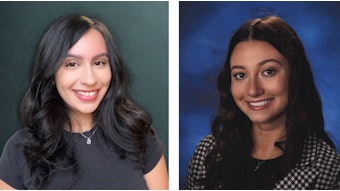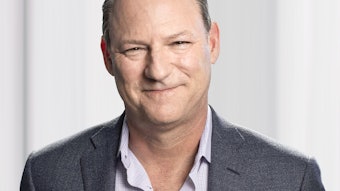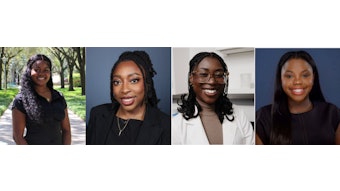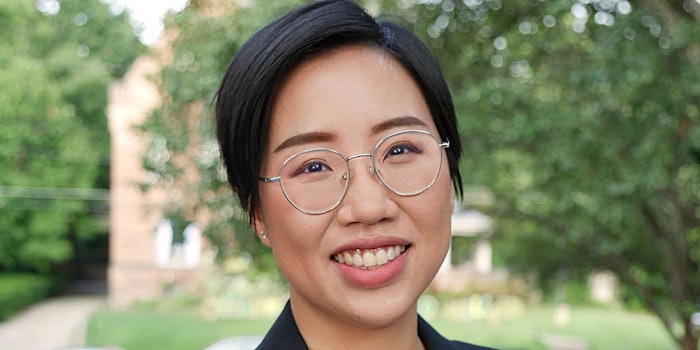
Meet Apipa Wanasathop, a student pursuing her doctorate in pharmaceutical sciences with a focus on biomembrane sciences. She anticipates graduating in fall of 2021.
Previous "Ones to Watch:" Lynnette Greber
Wanasathop is currently a student at James L. Winkle College of Pharmacy at the University of Cincinnati
 What interests do you have, or what work are you conducting, that is relevant to cosmetics R&D?
What interests do you have, or what work are you conducting, that is relevant to cosmetics R&D?My journey in the cosmetic science world started when I was an intern in a cosmetic R&D factory in Thailand. I fell in love with formulating and testing all the different formulations. When I decided to continue my study, I wanted to learn more in-depth about how each ingredient can affect the skin, hair and other membranes.
Being a part of this industry makes me feel that I have contributed something to mankind.
My main research is on membrane permeation. We have tested several rinse-off products on several aspects such as skin permeation of a moisturizer, eye irritation from surfactants and methods to reduce teeth sensitivity.
Most of the work we have done is in vitro testing using tissue samples. I hope that by developing these in vitro techniques, we can provide a better correlation to clinical testing and reduce the use of animal testing.
What do you like most about your work? What do you find most challenging?
Working in research requires a lot of imagination. I find it challenging to develop a method that will answer the targeted questions by using only what we have in the lab. Most of the time, it will be a modification of the equipment/instrument or even a tiny tweak in the protocol. Every little detail matters. I like that there are so many possibilities and outcomes.
Describe one of your biggest achievements or “A-ha!” moments relevant to cosmetics R&D.
I love working on data, especially when summarizing the numbers into figures and make them representable. When we were working on the data for the eye irritation study previously mentioned and all the data came up as expected—it was my biggest “A-ha!” moment.
We all know that sometimes the results from the experiment can be different, hard to summarize or even not applicable but when it came together beautifully, it really made my day.
What is it about the cosmetics and personal care industry that excites you?
The trends are always changing and there are so many new things coming up along the journey. By experiencing and seeing new ingredients and formulas—and then being able to discuss these trends with friends who have the same passion for cosmetics—it really excites me.
Moreover, cosmetics can appease personal problems and help increase self-confidence. They can make an impact on a consumer's life and enable them to show how beautiful they truly are. Being a part of this industry makes me feel that I have contributed something to mankind.
What areas or technologies do you think are untapped for cosmetics R&D? i.e., what areas would you like to explore to shape the future of our industry?
With the advances in technologies, apparatuses, processes and materials, it is possible to develop an in vitro method that is sensitive enough to show the efficacy and safety of new products and formulations. This will not only help reduce the use of animal testing, but also increase the speed of the testing procedure.
The OECD recently approved the first animal alternatives sensitization test developed by BASF and Givaudan. I was very excited when I saw the news and I believe that there are many more to come!
Related: UK Government to Certify Cosmetics for Animal Test Exemptions in China
